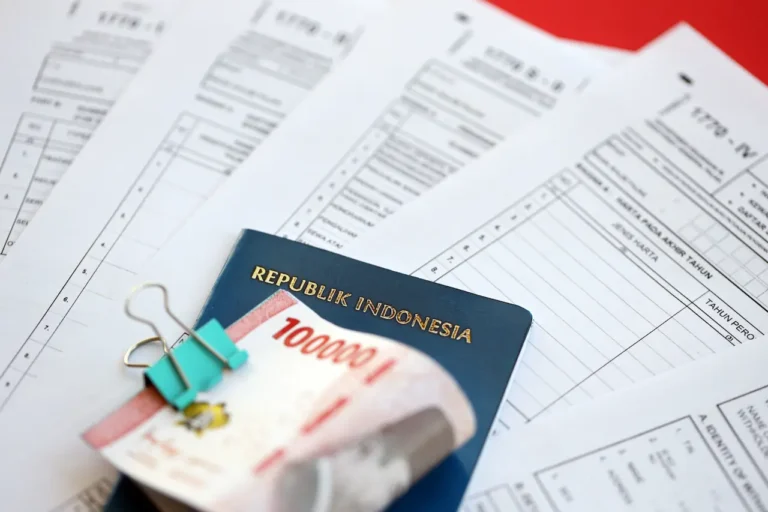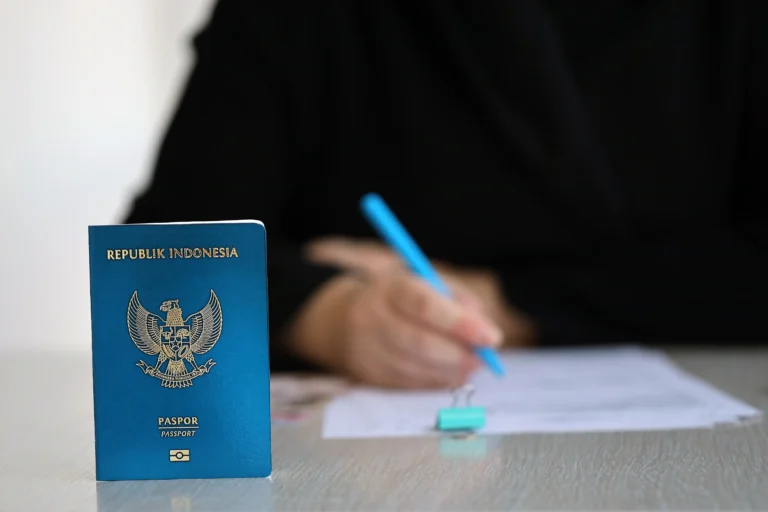Table of Contents
ToggleAs business owner of a PT PMA or foreigner working in Indonesia, the working contract in Indonesia is governed by the Government Regulation No. 35 of 2021, known as GR 35/2021. The law identifies two primary types based on the nature of work: the Fixed-Term Employment Agreement (PKWT) and the Indefinite Time Employment Agreement (PKWTT).
Employment contracts in Indonesia play a pivotal role in providing clarity on rights, obligations, and legal protection, especially in the context of employment termination. It is also essential before applying for a working visa to understand the employment rules.
What is an employment contract? How is it in Indonesia?
An employment contract is a bilateral agreement, typically a private one, between two parties, one of whom (the employer) is in a position of authority over the other (the employee). This relationship is codified in a document called a “work contract.” This is important because, if no formal contract has been signed, a person in that relationship can literally argue that their agreement is a work contract and recast it accordingly. Indonesia regulates the working relations with the Ministry of Law and Human Rights and the Deputy Ministry of Kemnaker.
A working contract in Indonesia has to follow some provisions but in general both parties can define clauses as much as they want as long as they are in line with the manpower law. A working contract in Indonesia can refer to the company regulation if this one has been approved by the ministry. The working contract defines the relation and how parties will interact to each other and their rights and obligations during the duration of the contract.
Never worry about taxes and accounting again
Dealing with finances, taxes, and accounting can feel overwhelming, especially as a foreigner in Indonesia. Let us guide you through processes like tax calculation, payroll, personal or corporate tax, short-term investments, balance sheet analysis and much more.
With ILA by your side, nothing can go wrong. Schedule a free consultation today or learn more about our tax and accounting services.
Key Requirements for Working Contract in Indonesia
Apart from complying with Article 1320 of the Criminal Code, formulating an employment contract must adhere to specific provisions outlined in Law 13/2003. These include mutual agreement, legal capacity, a specified job, and alignment with public order, decency, and applicable laws.
Types of Working Contracts in Indonesia
Fixed-Term Working Contract (PKWT)
PKWT, often utilized for time-bound projects, is a written agreement registered with the manpower office. It is valid for a maximum of five years or until project completion. If the work extends beyond the contract period, an extension can be agreed upon, not exceeding an additional five years. GR 35/2021 mandates compensation to employees at the conclusion of the working period.
Indefinite Time Working Contract (PKWTT)
In contrast, PKWTT establishes a permanent employment relationship, applicable to all types of work. Unlike PKWT, PKWTT can be made verbally, with no mandatory registration. If an oral agreement is reached, the employer must issue a written letter of appointment to the employee.
Differentiating PKWT and PKWTT
The distinctions between PKWT and PKWTT are notable, particularly post the enactment of the 2020 Job Creation Law. A summarized table based on GR 35/2021 highlights differences in terms of the type of work, working period, agreement form, registration, and termination of employment relations.
| Difference | PKWT | PKWTT |
| Type of work | Limited to specific non-permanent jobs | Not limited; encompasses both permanent and non-permanent roles |
| Working period | Limited, based on a maximum of 5 years or task completion | Unlimited |
| Agreement form | Must be written | Written or oral (accompanied by a letter of appointment) |
| Registration at Ministry | Mandatory within 3 days of signing PKWT | Not mandatory |
| Termination of Employment | Ends by law at the completion of work or task | Either party can terminate; compensation based on PKWT period elapsed |
| Probationary period | Not allowed | Allowed, with a maximum of 3 months |
| Compensation for Termination | PKWT compensation; Article 62 of Law 13/2003 | Severance pay, service reward, compensation for rights, or severance pay |
Essential Elements in Employment Contract in Indonesia
According to GR 35/2021, PKWT must include company details, employee information, job specifics, wages, rights and obligations, validity period, and signatures of both parties. PKWTT, as per Law 13/2003, should encompass company details, employee information, job specifics, wages, working conditions, agreement details, and signatures.
The Significance of a Written Employment Contract in Indonesia
An employment contract is an important document because it clearly defines the rights and obligations of both parties and provides legal certainty by serving as a main reference in the event of disputes. Its significance lies in ensuring clarity on individual rights and duties, legal protection, minimizing potential conflicts, and adhering to agreed-upon terms.
Conclusion: Candidates need to careful about what they are signing and whether in these employment contracts all the terms are clearly understood before signing the across as employment contracts are important forms of legal protection for both employee and employer. Understanding their implications well paves the way for a more equally matched and legally protected relationship in the workplace in Indonesia.
Special Considerations for Foreign Workers: Temporary Employment Contracts in Indonesia

Working Contract for Foreigners in Indonesia and Bali
In line with the previously discussed types of contracts contingent on job nature, a distinct provision exists for foreign workers in Indonesia. As stipulated by Article 42 of the Manpower Law, employment contracts for foreign employees must specifically be temporary in nature. In essence, this implies that expatriates are restricted from assuming permanent positions within the Indonesian workforce. However, avenues for further employment with different companies become viable once the existing contract concludes.
Position Limitations for Expatriates
Moreover, the scope of positions available for expatriates is constrained. As outlined in the Ministry of Manpower Regulation No. 228 of 2019, specific positions are permissible for expatriates. Foreigners cannot conduct any kind of job in any business sector. Some sector are prohibited to foreigners. We recommend checking with ILA or HR which job positions are available for foreigners if you consider working in Bali or the rest of Indonesia. The working contract is necessary to apply for a working visa.
Employment Contracts: Essential Elements and Best Practices
Before starting to draft a working contract, it is recommended to send a formal offer letter to the candidates and define the essentials information that have to be written later in the contract:
- Name of the parties
- Remuneration and bonus (how many months salary and when it will be paid)
- Key Performance Indicator to assess the bonus
- Starting date
- Probation period
- Job description
- Working hours and number of days of work per week
- Day off per year
The purpose is obviously to avoid any dispute in the future between the parties during the final signature. The contract itself should at minima take back the terms and conditions of the the offer letter. We recommend to have the contract in bilingual if the employee is a foreigner.
Once the contract is signed, both parties must hold a copy. The copy to keep is the one where the other party signs on the stamp duty.
Also Read : Indonesia Minimum Wages increase by 6.5% in 2025
Terminating Employment Contract in Indonesia
In Indonesia, terminating an employee is a highly regulated process governed by strict rules under the Labor Law. The process follows specific guidelines that define valid reasons for termination and the associated severance pay requirements. Fundamentally, Indonesia’s Labor Law aims to minimize terminations and promotes cooperation between employers, labor unions, and the government. The focus is on seeking alternative solutions before resorting to termination.
Grounds for Employee Termination
The termination of an employment contract in Indonesia is contingent on various factors, including both employee-related and company-related circumstances. Employee-related grounds include violation of the employment agreement, prolonged sickness, unexplained absences, employee misconduct, reaching retirement age, or being convicted of a crime. Company-related grounds encompass business insolvency, mergers or acquisitions, downsizing due to sustained financial losses, or bankruptcy.
Unfair Grounds for Termination of a Working Contract
Certain circumstances are considered unfair grounds for termination, and employers are prohibited from dismissing employees in these situations. These include instances such as illness, marriage, religious practices, familial relationships within the same company, and undertaking state duties. Other cases such as reporting the employer for criminal acts, discrimination, pregnancy, and joining a labor union can conduct to unfair termination.
The Termination Process
Under a working contract in Indonesia, employers must provide written notification when terminating an employee, detailing the reasons for termination, any termination payments, and entitlements, at least 14 days before the effective date. If the employee agrees, the employer can notify the Ministry of Manpower. If not, the employee has seven days to submit a written objection. Both parties should aim for mutual agreement, but if disagreements persist, mediation can be requested at the local Ministry of Manpower office. If mediation fails, the case may be brought to the Industrial Relations Court for final resolution.
Compensation for termination
Terminated employees are entitled to compensation payments such as severance payments, long service pay, and compensation of rights. The amount varies based on the length of employment contract in the company. Long service pay is determined by the years of service, compensating employees for their dedication. Additionally, compensation for untaken annual leaves and other costs, such as relocation, may be included.
Severance Payments
Those payments are calculated based on completed years of service. It is ranging from one month’s wage for less than a year of service to nine months’ wage for over eight years of service. The termination payment calculation includes severance payment, long service payment, compensation of rights, and separation pay.
Termination for Fixed-Term Contract Workers
For fixed-term contract workers, there are three recognized types.
- Based on the completion of work
- Based on a specific time period
- related to non-permanent work
These contracts are for temporary roles with a maximum extension of five years. The company cannot extend the contract after 5 years without seeing the contract qualified as a permanent working contract. This type of contract end naturally at the date indicated on the contract.
Severance payment for employee in Indonesia
| Completed Years of Service | Severance Payment |
| Less than 1 year | 1-month wage |
| More than 1 year but less than 2 | 2 months wage |
| More than 2 years but less than 3 | 3 months wage |
| More than 3 years but less than 4 | 4 months wage |
| More than 4 years but less than 5 | 5 months wage |
| More than 5 years but less than 6 | 6 months wage |
| More than 6 years but less than 7 | 7 months wage |
| More than 7 years but less than 8 | 8 months wage |
| Completed Years of Service | Long-term Severance Payment |
| More than 3 years but less than 6 | 2 months wage |
| More than 6 years but less than 9 | 3 months wage |
| More than 9 years but less than 12 | 4 months wage |
| More than 12 years but less than 15 | 5 months wage |
| More than 15 years but less than 18 | 6 months wage |
| More than 18 years but less than 21 | 7 months wage |
| More than 21 years but less than 24 | 8 months wage |
| More than 24 years | 10 months wage |























